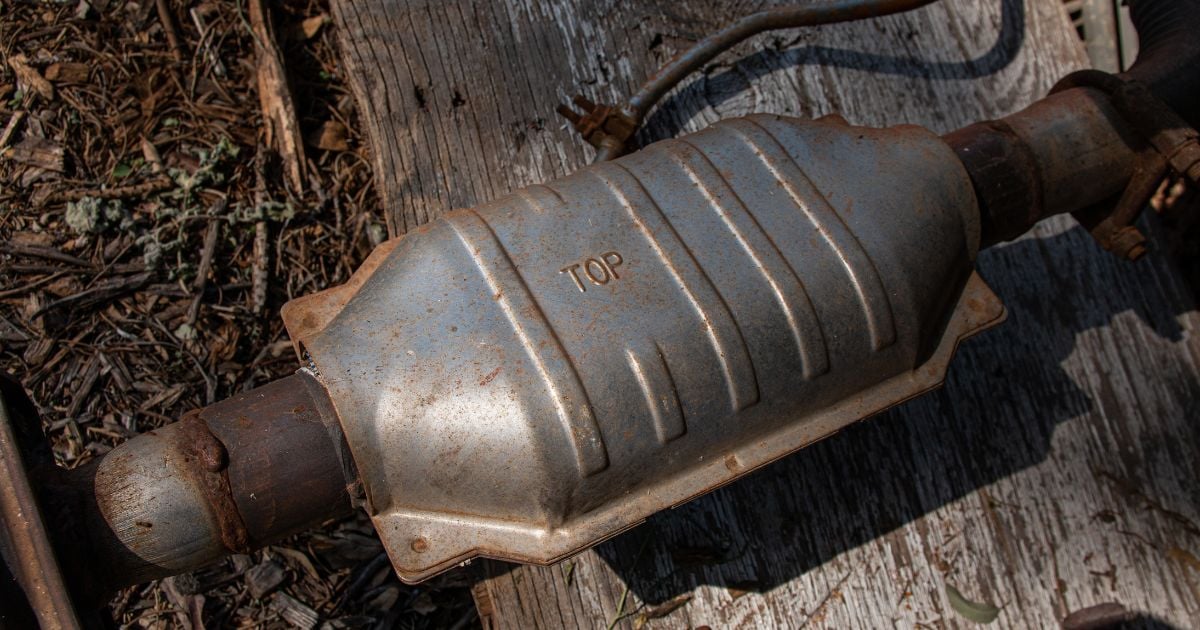How Many Miles Can You Expect Your Catalytic Converter to Last?

A catalytic converter is an essential component of a vehicle’s exhaust system. It helps to reduce the amount of harmful pollutants that are released into the environment by converting them into less harmful substances. However, like all parts of a car engine, a catalytic converter has a finite lifespan.
Typically, a catalytic converter can last anywhere from 70,000 to 100,000 miles, depending on a variety of factors such as the type of vehicle, driving conditions, and maintenance.
A catalytic converter can sometimes last even longer, up to 150,000 miles or more. However, factors such as clogged filters, unburned fuel, carbon deposits, and sulfur smell can all impact the lifespan of a catalytic converter.
Replacing a catalytic converter can be expensive, as the device contains precious metals such as platinum, palladium, and rhodium.
In recent years, the rising cost of these metals has led to an increase in catalytic converter theft, with thieves targeting vehicles to steal the expensive metals.
It is important for vehicle owners to be aware of the lifespan of their catalytic converter and to take steps to protect it from damage or theft.
What is a Catalytic Converter?
A catalytic converter is an emissions control device installed in a vehicle’s exhaust system. It is designed to reduce the amount of pollutants that are emitted from the engine into the atmosphere.
The catalytic converter works by converting harmful gases and pollutants, such as nitrogen oxides, hydrocarbons, carbon monoxide, and carbon dioxide, into less harmful emissions.
The catalytic converter is a critical component of the vehicle’s exhaust system, as it helps to reduce the amount of harmful pollutants that are released into the environment.
It is typically located underneath the vehicle and is made up of a ceramic or metallic honeycomb structure coated with a catalyst material, such as platinum, palladium, or rhodium.
The catalytic converter also contains an oxygen sensor, which helps to monitor the amount of oxygen in the exhaust system.
This information is used to adjust the engine’s air-to-fuel ratio, which helps ensure that the catalytic converter is functioning properly.
How Many Miles is a Catalytic Converter Good For?
Average Life of a Catalytic Converter
The average lifespan of a catalytic converter is between 70,000 to 100,000 miles or 100,000 to 160,000 kilometers. However, the lifespan can vary depending on several factors.

Factors Affecting the Life of a Catalytic Converter
The life of a catalytic converter can be affected by various factors such as the life of the car, engine performance, emissions, damage caused by oil or other contaminants, and short start/stop journeys.
Modern vehicles are equipped with advanced engine management systems that help optimize the catalytic converter’s performance.
Short trips, driving with a bad catalytic converter, and overheating can cause damage to the converter and reduce its lifespan.
How to Extend the Life of Your Catalytic Converter
To extend the life of your catalytic converter, it is essential to maintain optimum operating conditions for the converter.
Regular maintenance of the car engine and exhaust system can help in preventing damage to the converter.
It is also important to replace faulty spark plugs and filters, as unburned fuel and carbon deposits can clog the converter.
Replacing a Catalytic Converter
If a catalytic converter is damaged or defective, it needs to be replaced. The replacement process involves removing the old converter and installing a new one.
It is important to take the car to a mechanic for replacement, as the converter is made up of expensive metals such as palladium, rhodium, and platinum, and requires special handling.
Stolen Catalytic Converters
Thieves often steal catalytic converters as they contain precious metals such as palladium, rhodium, and platinum.
The theft of catalytic converters can cause damage to the car’s exhaust system and result in foul odors and harmful pollutants.
It is important to park the car securely and install a catalytic converter theft deterrent device.

Environmental Impact of Catalytic Converters
Catalytic converters are critical in reducing harmful pollutants such as nitrogen oxides, carbon monoxide, and hydrocarbons in the car’s exhaust.
This helps reduce emissions’ impact on the environment and improve air quality.
However, the production of catalytic converters involves the use of expensive metals and chemicals, which can have a negative impact on the environment.
Overall, catalytic converters are essential to the car’s exhaust system and play a critical role in reducing harmful pollutants.
Regular maintenance and proper handling can help extend the converter’s life and reduce emissions’ impact on the environment.
More Catalytic Converter Articles
- How the Size of Your Catalytic Converter Affects Your Car
- Does A New Catalytic Converter Need A Break-In Period?
- Can a Bad Catalytic Converter Cause a Car to Run Rich?
- Is Catalytic Converter Theft Covered by Geico Insurance?
- How Much Is A Catalytic Converter Worth?
- Why Can’t a Junk Yard Sell Catalytic Converters?
- Can Oil Damage a Catalytic Converter?
- Can You Clean A Catalytic Converter With Brake Cleaner?
